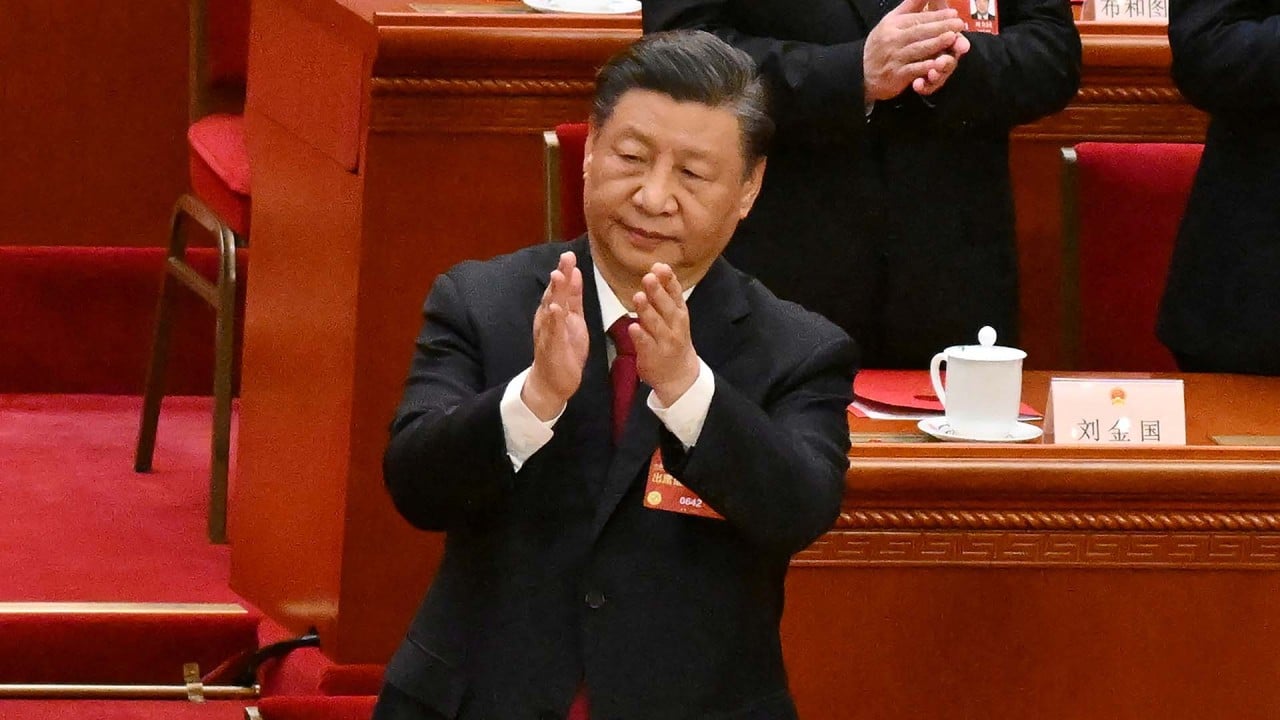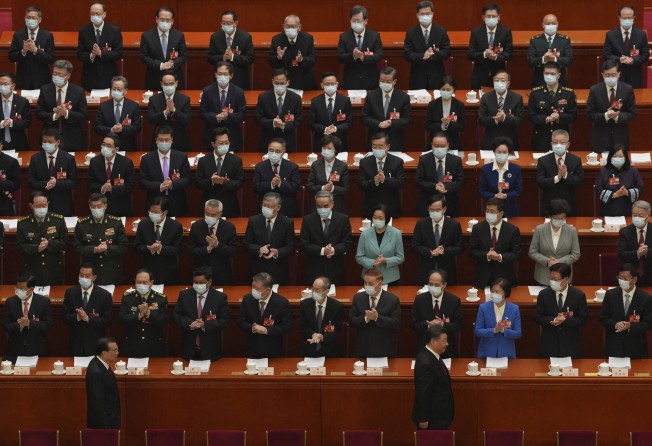
04:53
Xi Jinping stresses party leadership as parliament draws to close

China released in full its party and state overhaul plan on Thursday, revealing a strengthened “party-state” with more Communist Party control over crucial domains such as finance, science and technology and grass-roots governance, according to observers.
Under the plan, bodies will be set up under the party’s Central Committee to oversee finance, science and technology, and the top office overseeing Hong Kong and Macau affairs will report directly to the Central Committee instead of the State Council, China’s cabinet.
According to a directive that accompanied the plan on Thursday, the changes were necessary to ensure the party’s dominance in steering China down the path of modernisation and “delivering a national renaissance”.
Last week, the National People’s Congress endorsed a cabinet restructuring plan to set up a centralised financial regulator and a data bureau, as well as revamp the Ministry of Science and Technology, in an attempt to break the US stranglehold on technology and speed up the recovery of the post-Covid economy.
Over the past four decades, the country has regularly revamped its government and party structure to respond to pivotal issues and improve efficiency. But since 2018, restructuring plans have diverged from the trajectory of earlier reforms by consolidating party oversight over core issues.
Alfred Wu, an associate professor at the Lee Kuan Yew School of Public Policy at the National University of Singapore, said the most recent overhaul, which extended to the economic domain, had jeopardised the role of the State Council.
“When we understand China, everyone would say [it is a] party-state … It is party and the government. Now it is no longer structured like before, so that is very fundamental,” he said.
“It is a little bit like going back to the pre-Deng Xiaoping period.”
From 1982 to 1999, both party and state institutional reforms were carried out twice per decade. Since then, only state overhauls have happened every five years.
After reform and opening up began more than 40 years ago, then-paramount leader Deng Xiaoping led institutional reforms aimed at separating the party and state and preventing the concentration of power.
The reforms also aimed to simplify administration as China moved from a planned economy to a socialist market economy.
One of the most remarkable rounds of reform was led in 1998 by former economic tsar Zhu Rongji, who halved the size of the state administrative establishment and made room for marketisation.
Over the years, China has consistently cut or merged redundant ministries, commissions, and staff to boost administrative efficiency. Since 2008, it has combined commissions with overlapping functions into larger ministries to streamline bureaucracy.
Until 2013, “a lot of the effort [of reform] was to adapt to an economy that had become increasingly diversified, and in society as well”, said Dali Yang, a political scientist at the University of Chicago.
Yang noted that in the 2000s, most reforms occurred within the state, rather than the party, as there was an understanding that economic development was the responsibility of the State Council.
“But today, [the focus] is really to enhance and make sure that the fundamental issues are in the hands directly of the party,” he said.
In 2018, just days after President Xi Jinping secured the right to stay in power indefinitely, the government announced a raft of institutional changes overtly aimed at “centralising party leadership”.
The reforms established a handful of party committees and commissions – headed by party or state leaders – to strengthen the party’s central coordinating role in cyberspace, foreign affairs and economic issues. They also merged several government departments into the party apparatus.
Yang said these “continued efforts to reconfigure party-state organisations” ensured party leaders, rather than the State Council, were the key decision makers, relegating the state ministries to implementing party decisions.